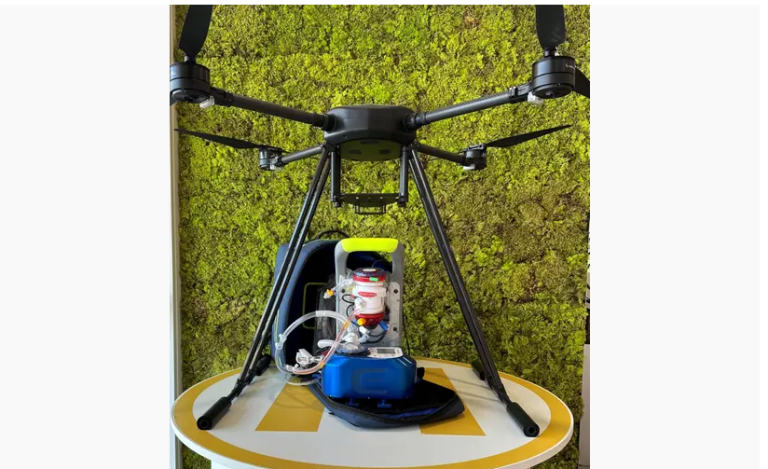In a groundbreaking medical intervention, a one-and-a-half-month-old infant suffering from acute bronchiolitis has been saved by a pioneering device used for the first time in the Caribbean. The life-saving technology, named Colibri, marks a significant advancement in medical equipment, having enabled the young patient to breathe and recover despite severe respiratory distress.
The infant, born in Guadeloupe and weighing only 5kg, faced a life-threatening situation when a viral infection led to respiratory failure and subsequent heart failure. Due to the severity of his condition, immediate medical intervention was crucial, but transferring the baby proved challenging due to his unstable state.
The breakthrough came through the collaborative efforts of medical teams from Martinique University Hospital and Guadeloupe University Hospital. The Martinique team, which operates the UMAC (Unité Mobile d’Assistance Circulatoire), used the newly introduced Colibri ECMO (extracorporeal membrane oxygenation) system. This third-generation device, designed and manufactured by the Italian company Eurosets, was specifically adapted for use in infants and children.
The Colibri device, named after the hummingbird – a symbol of Martinique – represents a significant leap in medical technology. It is the world’s lightest ECMO system, designed to temporarily replace heart and lung functions with an emphasis on portability and effectiveness. Equipped with a centrifugal pump with magnetic levitation and a device capable of oxygenating the blood, the Colibri system offers advanced circulatory support, making it ideal for both intra-hospital and extreme rescue operations, including airborne medical evacuations.
In a coordinated effort, the UMAC team, led by Dr Xavier Beretta-Piccoli, a paediatric intensive care specialist, and Dr Fabio Cuttone, head of paediatric cardiac surgery at Martinique University Hospital, successfully connected the Colibri system to the infant in Guadeloupe. This allowed for a safe helicopter transfer to the Martinique hospital, where the infant was admitted to the paediatric intensive care unit.
The infant was placed on the Colibri system for five days, during which time his heart and lungs regained their normal functions. Following a successful recovery, the baby was discharged from hospital after 15 days and returned to Guadeloupe. He will continue to be monitored periodically as part of routine care for patients who have undergone intensive care treatment.
This medical breakthrough was made possible through the collaboration between Martinique University Hospital, Eurosets, the Collectivité Territoriale de la Martinique (CTM), and European funding from React-UE (Recovery assistance for cohesion and the territories of Europe). The partnership has provided the Caribbean region with access to cutting-edge medical technology, offering a vital new tool for managing severe respiratory and cardiac conditions in children.
The Colibri system’s introduction to the Caribbean is a milestone in paediatric medical care, reflecting a significant step forward in providing high-quality, life-saving treatments in remote and challenging environments. With its innovative design and advanced capabilities, the Colibri ECMO system promises to enhance emergency medical care and improve outcomes for young patients across the region.
As the first successful use of this technology in the Caribbean, this case highlights the growing importance of international collaboration and technological advancement in addressing critical medical needs. The successful deployment of the Colibri device not only represents a triumph for the medical teams involved but also offers hope for future cases requiring advanced life support in challenging conditions.
For more information about the Colibri ECMO system and its impact on paediatric care, please visit Eurosets’ official website.

